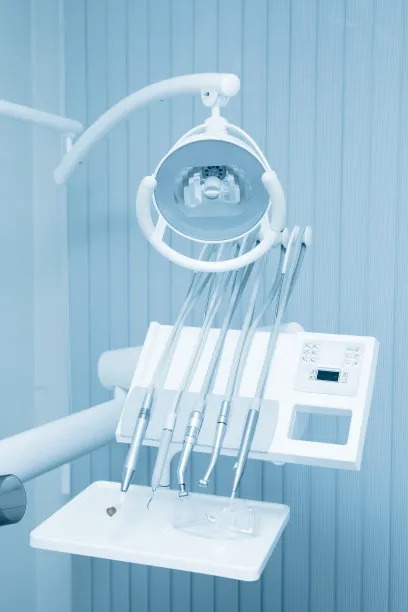Summary: Dental fillings are essential procedures that restore tooth structure compromised by decay or damage. However, optimal oral health before undergoing fillings is crucial. In this article, we discuss essential guidelines and precautions, including understanding the types of fillings available, preparing for the dental visit, post-procedure care, and recognizing complications. By being informed and prepared, patients can ensure a smoother experience with significant improvement in their overall oral health.
1. Understanding the Types of Dental Fillings

Before undergoing dental fillings, its essential to know the various types available. The most common filling materials include amalgam, composite resin, porcelain, and gold. Each type offers unique benefits, such as durability, aesthetics, and cost. For example, amalgam is highly resilient and ideal for large filling areas, while composite resins blend seamlessly with natural tooth colors.
Moreover, patients should consider their specific dental needs when selecting a filling type. Factors such as the location of the cavity, aesthetic preferences, and allergies to certain materials can influence the best choice. Consulting with a dentist to evaluate these factors will help ensure a suitable filling option that meets individual requirements.
Additionally, its wise to discuss the longevity of each filling type, as some may require replacement sooner than others. Understanding this will help patients manage their dental health better and set realistic future expectations.
2. Preparing for Your Dental Visit
Preparation for a dental filling involves several steps that ensure the appointment goes smoothly. Firstly, maintaining accurate dental records is vital; it allows the dentist to understand your oral history and any previous treatments. This information is crucial, especially if multiple cavities are present or if a history of dental anxiety exists.
Another essential aspect of preparation is communicating any medical conditions or medications to your dentist. Certain health issues, such as heart conditions or diabetes, can affect dental procedures, and being open about them helps your dentist tailor the treatment approach effectively.
Furthermore, managing anxiety before treatment is vital. Techniques such as deep breathing, positive visualization, or even discussing sedation dentistry options with your dentist can significantly ease concern, contributing to a smoother experience during the procedure.
3. Post-Procedure Care and Recovery
After receiving dental fillings, proper post-care can significantly impact recovery and the longevity of the filling. Initially, patients may experience sensitivity or discomfort; therefore, it鈥檚 recommended to stick to soft foods and avoid extreme temperatures in food and beverages for at least 24 hours.
Additionally, maintaining excellent oral hygiene is crucial following the procedure. Brushing twice daily and flossing can prevent further decay and protect the filled tooth. Regular dental check-ups will also ensure the filling remains intact and that the surrounding teeth are healthy.
It鈥檚 also important to monitor the fillings condition over time. If any discomfort, sensitivity, or unusual changes arise in the filling, patients should promptly consult their dentist for assessment, as these could be signs of complications that require immediate attention.
4. Recognizing Potential Complications Early
Being aware of potential complications after dental fillings can lead to timely intervention. While most fillings are straightforward, issues like recurrent decay, allergic reactions to materials, or sensitivity can occur. Recognizing symptoms early can help prevent more severe problems down the line.
Another concern is the potential for the filling to fall out or become loose. If this happens, patients should avoid chewing on that side of the mouth until seeing a dentist. Immediate care is necessary to prevent further tooth damage or infection.
Moreover, being informed about the signs of complications empowers patients to take charge of their dental health. Regular self-exams of the mouth and paying attention to discomfort can greatly reduce the risk of more serious complications requiring invasive treatments.
Summary:
Prioritizing essential guidelines and precautions before undergoing dental fillings contributes significantly to maintaining optimal oral health. From understanding the types of fillings and preparing for a dental visit to ensuring proper post-care and recognizing complications, informed decisions pave the way for a positive dental experience.
This article is compiled by Vickong Dental and the content is for reference only.
Vickong Dental
Vickong Dental is a large medical group established in Hong Kong in 2008 by professors from well-known medical universities in Guangdong and Hong Kong, as well as medical doctors from key national '985' universities (including Master's supervisors and senior professors). The chain of branches brings together expert dentists with PhDs and Master's degrees from Hong Kong and Mainland China, committed to providing high-quality dental treatment.
"Vickong Dental Practices the University Motto of 'Healing and Serving Society,' with a Stable Operation for Sixteen Years. It Has Been honored with Hong Kong Enterprise Leaders's Choice,' and is a Global Trusted Implant Center for the Nobel Implant System. Recommended by Hong Kong Metro Broadcast and Guangdong Television, it Serves Customers from Over Thirty Countries and Regions, Gaining the Trust and Favor of Citizens from the Guangdong-Hong Kong-Macau Greater Bay Area and Surrounding Cities.

Thousands of customers' unanimous praise
The most recognized and highly recommended dental service by customers in the Guangdong-Hong Kong-Macau Greater Bay Area
We Ensure You Receive Detailed Care and Attention Here
Hong Kong standards, Shenzhen prices, Your Trusted English-speaking dentists

Vickong Dental Medical-Grade Instrument Disinfection Process
Vickong Dental Medical-Grade Instrument Disinfection Process

Vickong Dental Chain: A Warm and Comfortable Environment for Treatment






Appointment Hours

Q&A
Why choose Vickong Dental?
Vickong Dental practices the university motto 「Medicine to Benefit Society」, with each branch bringing together highly qualified dentists with doctoral and master’s degrees from Hong Kong and the Mainland, and has maintained seventeen years of steady operation。Recipient of 「2024 Hong Kong Enterprise Leaders Brand」, 「2025 Hong Kong Enterprise Leaders Brand」, a Nobel Biocare Global Trusted Implant Center, and a brand recommended by Metro Radio Hong Kong and Guangdong TV。
To date, we have served customers from more than thirty countries and regions,earning exceptionally high word-of-mouth recognition and trusted recommendations from residents across the Guangdong-Hong Kong-Macao Greater Bay Area and surrounding cities
We have eight major branches in Zhuhai、Shenzhen,and a consultation and service assurance center in Hong Kong,so you can book a free consultation at any time for any questions,which is very reassuring.
If I do not accept the quotation after the CT scan, will I be charged??
No! As long as the actual treatment has not started, you will not be charged any fees.
Will there be any additional charges during the treatment process?
No, there won’t be any additional charges. Before treatment begins, we will clearly explain the treatment plan and its corresponding fees. Only after the patient agrees and signs the consent form will we proceed with the dental service.
Can I pay in Hong Kong dollars?
Yes. Vickong Dental accepts payment in Hong Kong dollars. The amount will be converted based on the exchange rate of the day, and the applicable rate will be clearly communicated to you in advance.
Can I reschedule my appointment at any time?
Yes. Please contact us via **WeChat** or **WhatsApp** as early as possible, providing your original appointment time and details, along with your preferred new date and time slot for rescheduling.













